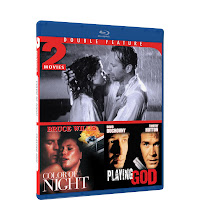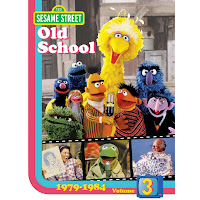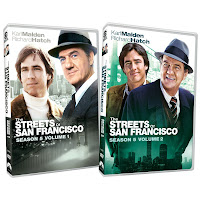the traveler's resource guide to festivals & films
a FestivalTravelNetwork.com site
part of Insider Media llc.
Reviews
Movie Review: "Silver Linings Playbook" Scores
- Details
- Parent Category: Film and the Arts
- Category: Reviews
- Published on Thursday, 15 November 2012 12:36
- Written by Lloyd Carroll

Silver Linings Playbook
Written and Directed by David O. Russell
Starring Bradley Cooper, Jennifer Lawrence, Robert De Niro, Jackie Weaver
Silver Linings Playbook is not the easiest film to watch. I can’t think of a single film where the two lead characters suffer from deep psychological issues and yet we like and root for them throughout.
The film opens with Pat Solatano, Jr. (Bradley Cooper) getting ready to leave a Baltimore psychiatric hospital where he spent eight months there due to a court order because of an “incident.”
Midway through the film we learn that Pat came home in the middle of the day from the school where he and his wife Nikki works, to catch her screwing another teacher not in the bedroom but making love in a shower as his wedding song, Stevie Wonder’s “My Cherie Amor,” is playing in the background. In a scene designed to draw comparisons to Psycho, Pat beats his rival and comes within a hair of murdering his wife’s paramour.
In spite of losing his wife, job, and home (he now lives with his parents played by Robert DeNiro and Jackie Weaver), Pat is surprisingly upbeat from his stint in Baltimore because he sincerely feels that he can win Nikki back (he’s still deeply in love with her), regain his job, and have exactly the same life that he had before “the incident.” He believes that he is a better person and looks for the positives (“silver linings’) in life. We quickly learn that Pat suffers from severe mood swings which are indicative of his being bi-polar, something that was not diagnosed for a good part of his life.
He also suffers from obsessive compulsiveness that displays itself through his maniacal exercise regiment and his voracious reading of great American novels. Nikki apparently wanted him to both lose weight and become more learned.
To help him get back to socializing, Pat’s friends, Ronnie (John Ortiz) and his wife Veronica (Julia Stiles), invite him to dinner where the other guest is Veronica’s unpredictable sister, Tiffany (Jennifer Lawrence), a young widow who has been battling depression her entire life.
Like members of rival cults, Pat and Tiffany think that the other is crazy while they themselves are certain that they are relatively sane. It’s not until they discussing their psychotropics, as well as commiserating about the fact that each has a wildly successful and “normal” sibling, that they develop some rapprochement. Neither have them have any filters that block them from uttering their thoughts so volatility is palpable throughout this film.
Writer/director David O. Russell, who was the mastermind behind The Fighter, nails nearly all of the little details so perfectly that you forget that you are watching a movie and feel that you are eavesdropping on very real people.
Russell also brilliantly captures two of our national obsessions, pro football and dance competitions.
The Philadelphia Eagles are practically a religion in the City of Brotherly Love, something I am too well acquainted with. Pat’s father, Pat Sr. (De Niro in one of his better recent roles) is a bookie who would never better against his beloved “Birds.” He is banned from attending games at the Eagles’ stadium, Lincoln Financial Field, because he was always getting into fights. Watching the games on TV with Pat Jr. is a was of bonding for them.
Tiffany loves to dance and her dream is to take part in a competition that is held during the holiday season at a swanky Center City hotel. Her late husband hated dancing and Pat feels the same way. He reluctantly agrees to be her partner only when she promises to deliver a letter from him to his wife who has a restraining order out on him.
A subtle plot point that Russell brilliantly explores is coming to grips with a relationship that is nothing more than a glorified crush and coming to grips with who is and isn’t right for you. Even though Pat is clearly an extreme individual, who among us hasn’t dreamt of winning back the affections of someone who dumped us by doing things that we believe will make us more desirable to them?
Bradley Cooper, who grew up in the Philly suburbs, shines in a very difficult role and shows that he is far more than that guy from The Hangover movies. Lawrence delivers an Oscar-worthy performance as well.
Silver Linings Playbook has plenty of silver linings for filmgoers.
NYC Theater Roundup: ‘Annie’ Returns to Broadway, ‘Sorry’ Off-Broadway
- Details
- Parent Category: Film and the Arts
- Category: Reviews
- Published on Wednesday, 14 November 2012 20:00
- Written by Kevin Filipski
Annie
Book by Thomas Meehan; music by Charles Strouse; lyrics by Martin Charnin
Directed by James Lapine; choreographed by Andy Blankenbuehler
Performances through March 31, 2013
Sorry
Written and directed by Richard Nelson
Performances through November 25, 2012
If one musical is the poster girl for old-fashioned Broadway, it’s Annie, a huge hit back in 1977 and now better known to people who’ve never seen the show for “Tomorrow” and “It’s a Hard Knock Life”: the latter sampled by Jay Z for his 1998 hit “Hard Knock Life (Ghetto Anthem).”
Annie, a huge hit back in 1977 and now better known to people who’ve never seen the show for “Tomorrow” and “It’s a Hard Knock Life”: the latter sampled by Jay Z for his 1998 hit “Hard Knock Life (Ghetto Anthem).”
Although John Huston’s 1982 movie version was a financial and artistic disaster, Annie remains, in its unpretentious way, one of our most charming family-friendly musicals. In James Lapine’s new Broadway staging—which tries too hard at times to bring a contemporary edge to its essentially sweet story of the little orphaned red-head and the billionaire she guilelessly tames—the whole is greater than the sum of its parts, as sentiment trumps cynicism.
Lapine doesn’t hammer home parallels between the show’s Depression era that separates haves from have nots—with a hard-working Democratic president, FDR, trying to close the gap—and a similar situation obtaining today. Instead, he smartly concentrates on the relationship between Annie and Daddy Warbucks, brought to life in spot-on performances by newcomer Lilla Crawford, with her booming voice and refreshing uncutesy stage manner, and Australian Anthony Warlow, whose Warbucks is less a caricatured Koch brother than a lonely man who hopes that money can buy him love.
The supporting cast is led by an adorable mutt named Sunny as Annie’s beloved stray dog Sandy. A formidable troupe of young girls includes the criminally cute Emily Rosenfeld, who even outpaces her talented fellow orphans. Too bad that Katie Finneran provides another unimpressively blustery performance as Miss Hannigan, the hated head of the orphanage. In this usually foolproof comic role, Finneran gives it her all, which, as always, is both too much and not enough.
While Andy Blankenbuehler’s choreography is merely serviceable—and at its best when the orphans are front and center—David Korins’ silhouetted sets of New York buildings and bridges and storybook recreation of Warbucks’ gilded mansion are inspired. Charles Strouse’s music, one of the last Broadway scores crammed with miraculously tuneful melodies, contains songs that are not merely hummable gems but are at the service of the story: their greatness lies in their utter simplicity, just like Annie.
 Richard Nelson, in his plays about the Apple family—That Hopey Changey Thing, Sweet and Sad and now Sorry—has done the near-impossible for an American playwright. He writes about political matters without separating them from personal ones; in fact, he integrates them so well that we never feel we’re being preached or condescended to: in fact, these conversational plays make us feel we’re simply in the company of a family having uncommonly intelligent discussions at—in the case of Sorry—the breakfast table.
Richard Nelson, in his plays about the Apple family—That Hopey Changey Thing, Sweet and Sad and now Sorry—has done the near-impossible for an American playwright. He writes about political matters without separating them from personal ones; in fact, he integrates them so well that we never feel we’re being preached or condescended to: in fact, these conversational plays make us feel we’re simply in the company of a family having uncommonly intelligent discussions at—in the case of Sorry—the breakfast table.
The Apples—sisters Barbara, Marian and Jane, and brother Richard—are together on Election Day 2012 to do two things: talk about what’s transpired in our country since Election Day 2010 (when Hopey Changey was set), notably how disappointing—if still hopeful—President Obama’s first term has been; and decide whether their beloved uncle Benjamin, suffering from the first stages of Alzheimer’s, should be taken to a nearby rest home, since it’s too difficult for Barbara and Marian to take care of him at home.
Nelson’s dialogue is pointed and poignant; after three of these plays, we have really gotten to know the Apples, and can shed tears or laugh along with their conversations about the state of our nation, the state of New York—Nelson’s script is up to date, mentioning the effects of Hurricane Sandy alongside our endless election cycle—and the state of their family.
Nelson’s smart, simple direction lets his five peerless performers—a sixth character, Jane’s boyfriend Tim, is off doing a play in Chicago (actor Shuler Hensley is actually starring in another off-Broadway play and was unavailable—he’s supposed to return for Nelson’s final Apple play)—shine in their compelling naturalness. Jay O. Sanders (Richard), Maryann Plunkett (Barbara), Laila Robins (Marian), J. Smith-Cameron (Jane) and Jon Devries (Benjamin) are so in tune with one another that it’s unfair to single out anyone: they combine for a remarkable ensemble performance as the Apple family.
If Richard Nelson wants to keep checking in on them indefinitely, I’ll go along for the ride.
Annie
Palace Theatre, 1564 Broadway, New York, NY
Sorry
The Public Theater, 425 Lafayette Street, New York, NY
November '12 Digital Week II
- Details
- Parent Category: Film and the Arts
- Category: Reviews
- Published on Monday, 12 November 2012 10:00
- Written by Kevin Filipski
German composer Hans Werner Henze—who died recently at age 86—mastered many orchestral genres, from symphonies, ballets and operas to, as this superlative new disc makes clear, chamber music. The works here are highlighted by settings of Friedrich Holderlin's poems, Kammermusik 1958, which alternates aching instrumental interludes for string ensemble or guitar with vocal passages of unrivaled beauty sung by tenor Clemens C. Loschmann with tact and precision.
The shorter works—1948’s Apollo et Hyazinthus and 1982’s Canzona—also demonstrate Henze’s unique musical idiom that combines gorgeous Romanticism with unapologetic modernism.
November '12 Digital Week I
- Details
- Parent Category: Film and the Arts
- Category: Reviews
- Published on Monday, 05 November 2012 05:00
- Written by Kevin Filipski
More Articles...
Newsletter Sign Up






































